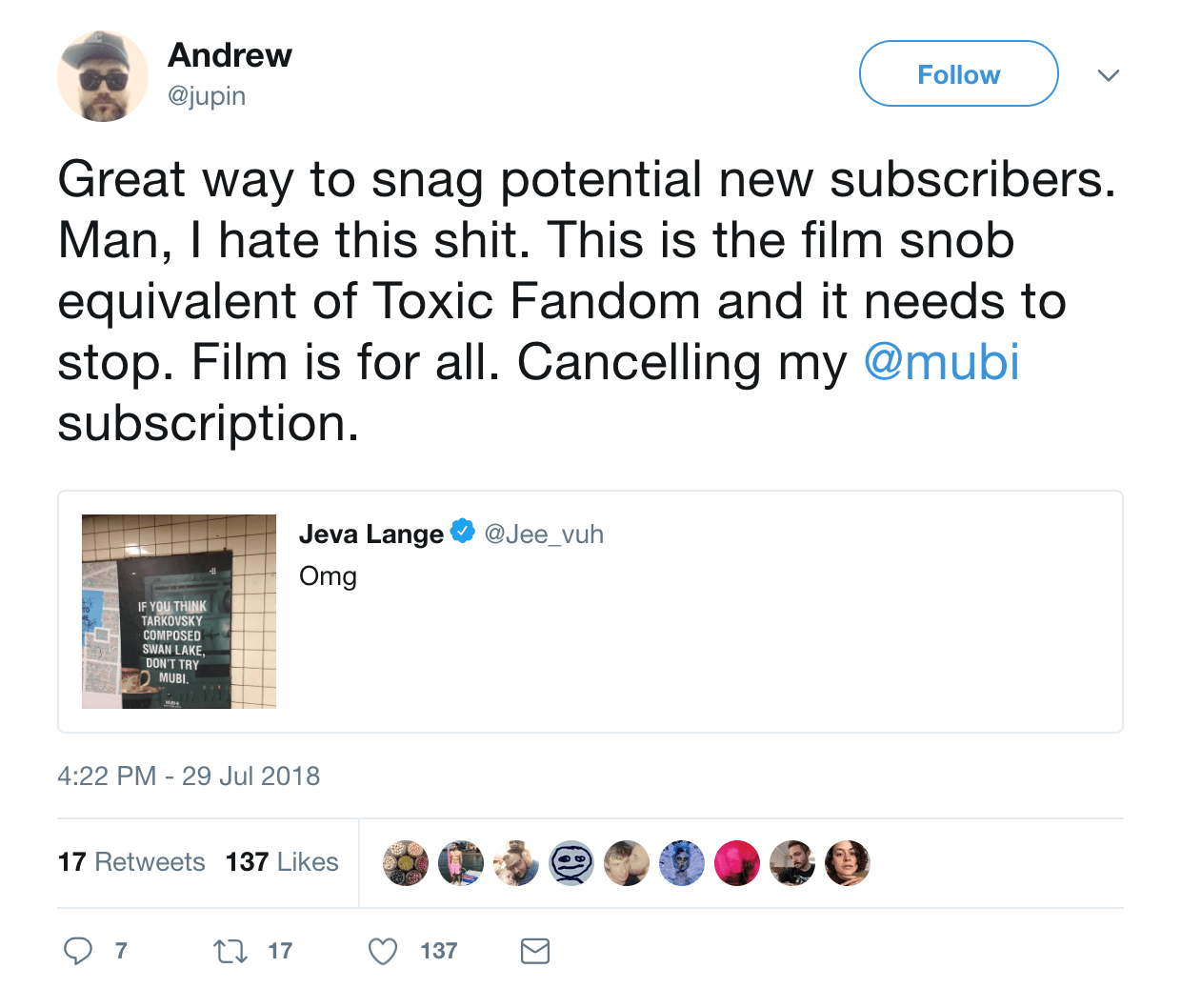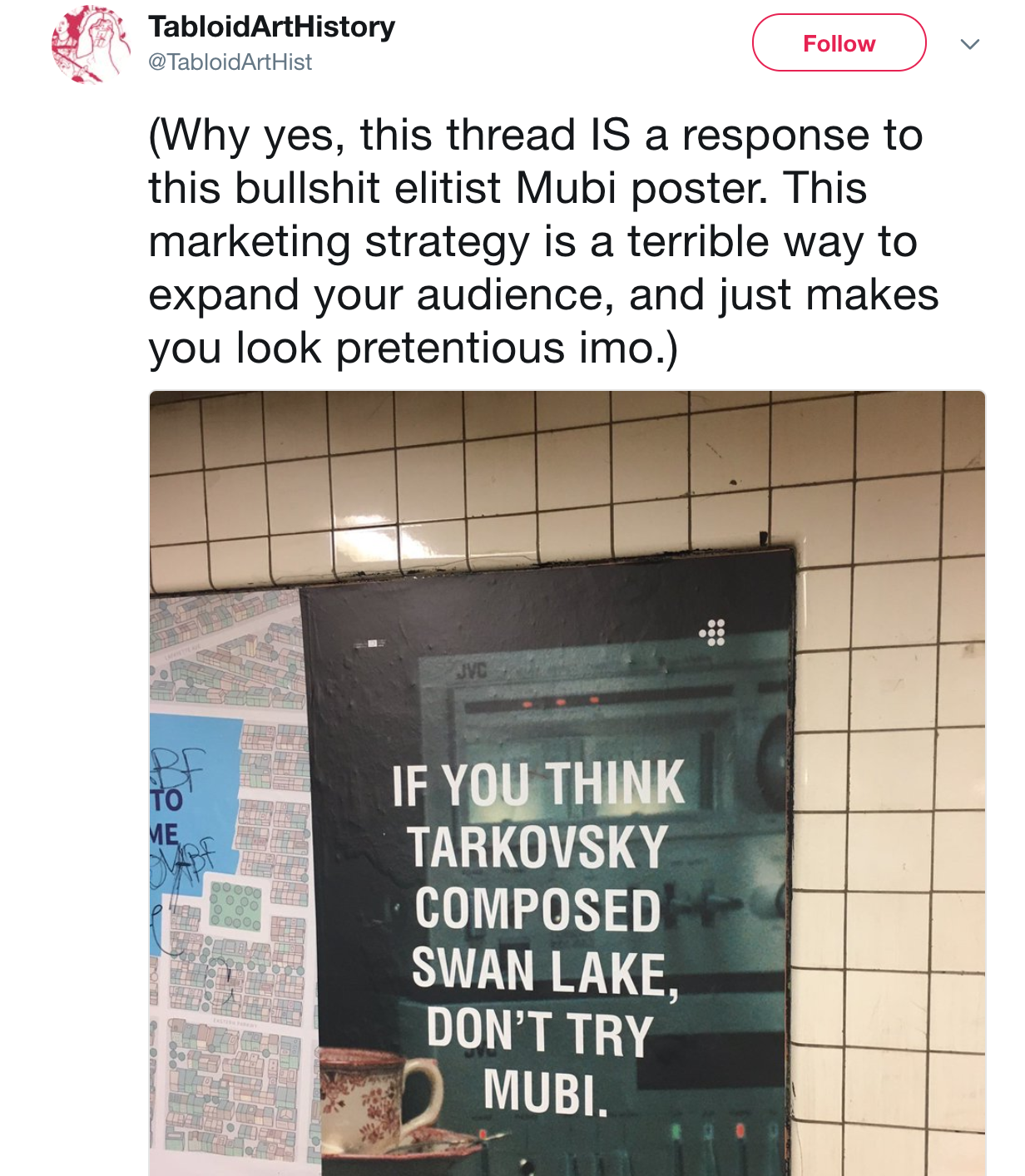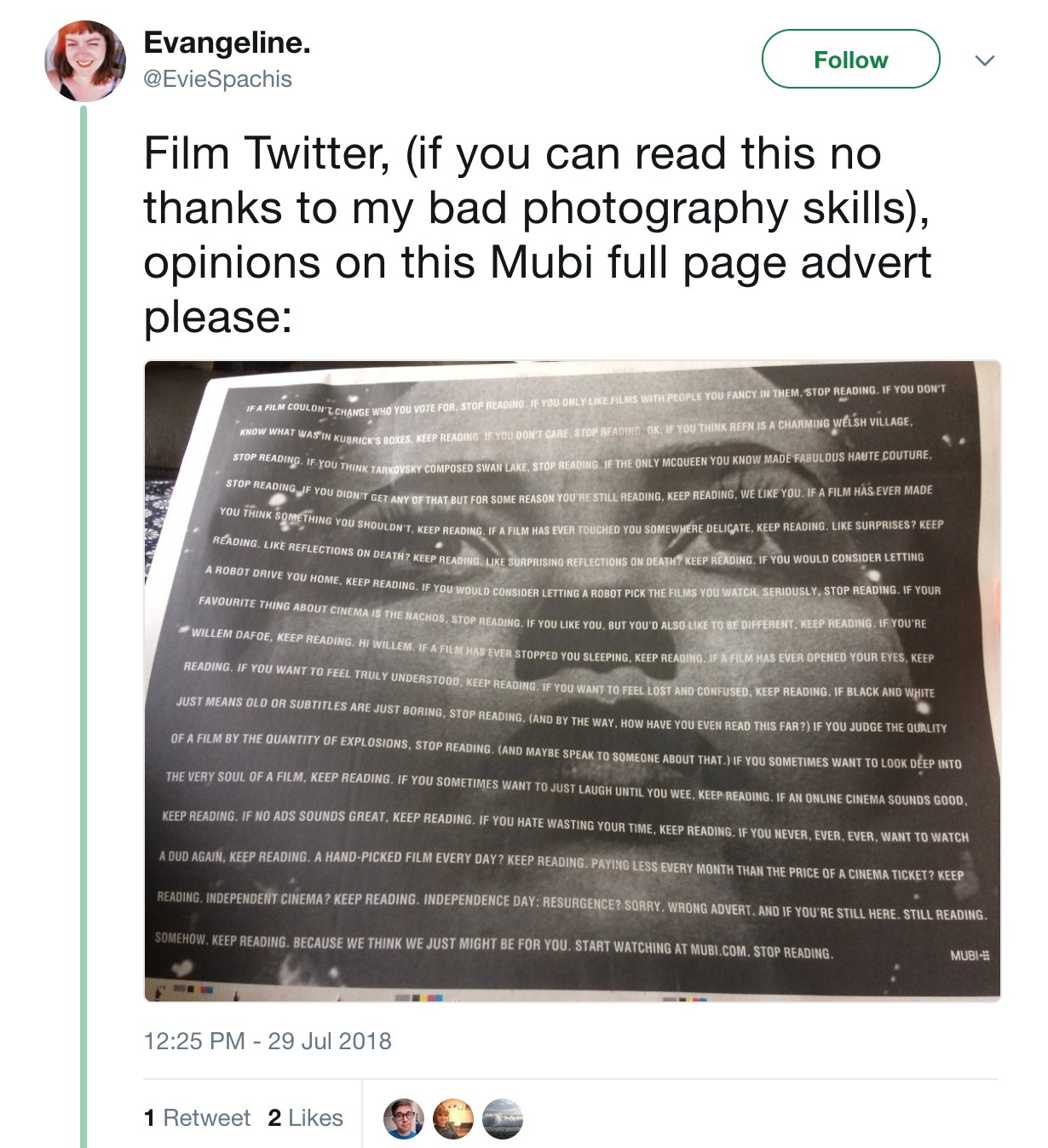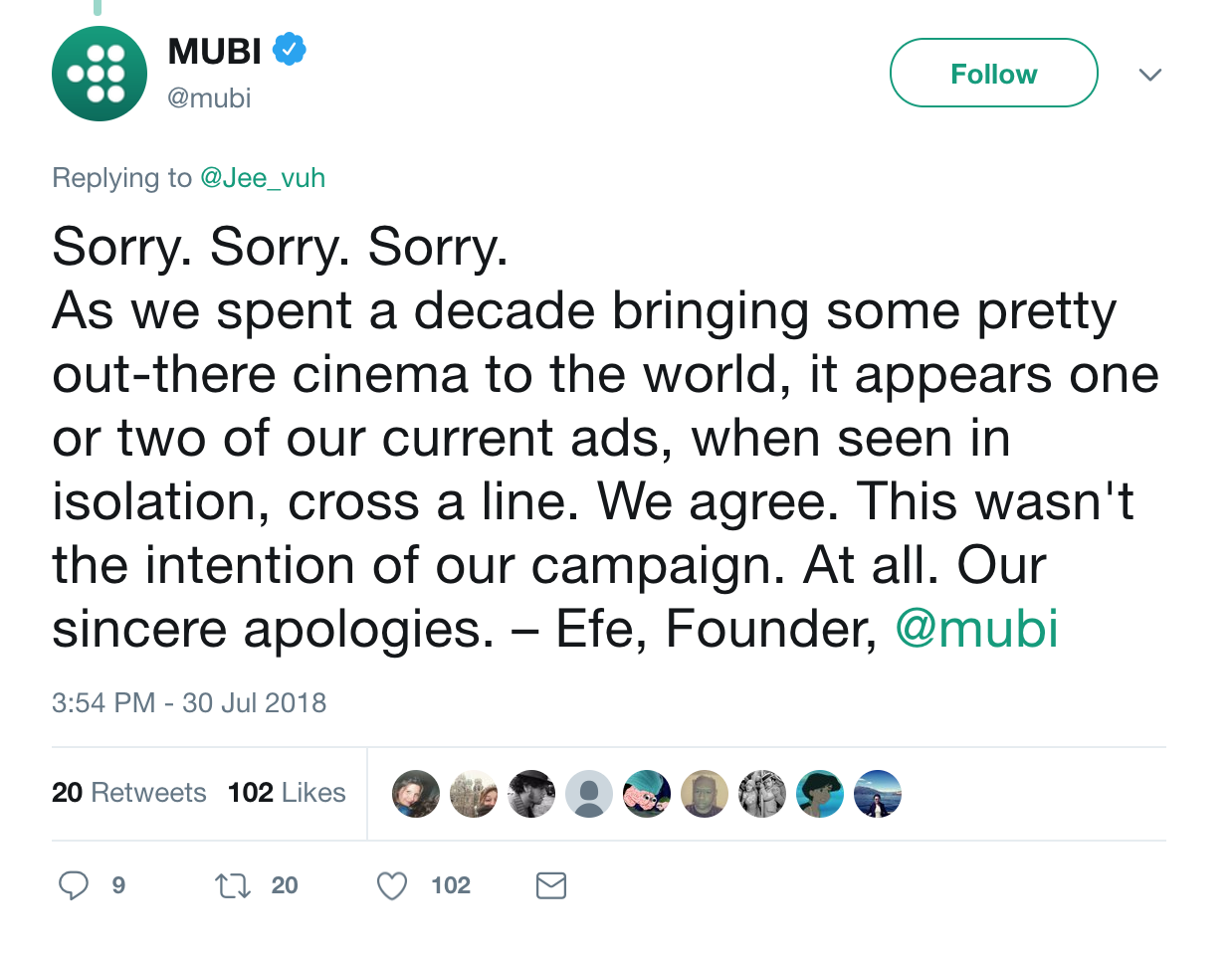An ad for arthouse cinema platform Mubi is causing controversy on social media, as it became the centre of an argument on gatekeeping and elitism in the art world. Whether it’s art, cinema or even fashion, imposter syndrome and the fear that you have to know everything about a subject to be able to speak on it — or even just enjoy it — is pervasive. This fear of being “found out” as a fan who doesn’t have an encyclopedic knowledge of any of these often intersecting worlds can stop young people and marginalised voices from involving themselves in mainstream cultural conversations. This is how people become creatively sidelined. It can also lead to a toxic environment where the only voices heard in art, fashion and film criticism are usually coming from the white, male gatekeepers. It’s exactly the kind of exclusionary atmosphere that’s summed up in an ad for arthouse cinema platform Mubi, which appeared on NYC’s subways this week.
The posters, which snidely proclaim: “If you think Tarkovsky composed Swan Lake, don’t try Mubi,” were first spotted in Queens, New York last week. They have since been slammed on social media for managing to epitomise the elitist, snobbish and inaccessible attitudes the arthouse cinema world should be dedicated to dismantling, not promoting. If you don’t get it — and I didn’t either, at first — it’s a super funny joke about how some people may mistake film director Andrei Tarkovsky for composer Pyotr Ilyich Tchaikovsky. Get it? Because their names sound similar, but if you’re really cultural, you’ll know the difference? Ha ha ha.

A deluge of tweets encouraged people to cancel their subscription to Mubi, with one person calling its message “unwelcoming, mean-spirited bullshit”, while another encouraged the service to “hire a new marketing strategist — your current one is a bad look.” The angry reaction isn’t just to Mubi’s poster — even though it is a terrible poster — but to the culture it represents, one that is traditionally snooty about pop culture. It even inspired a whole thread on elitism in the art world from young renegades Tabloid Art History, the collective dedicated to breaking down barriers between so called high and low culture in art.

“I think the tone of the poster itself is classic gatekeeping,” Chloe Esslemont, one of the three young women who founded Tabloid Art History in 2016, tells i-D. “While ostensibly it’s just an advert, it’s actually doing nothing to expand their audience or pique the interest of people. It appeals solely to pretension and superiority. “And as someone who likes the kind of films that Mubi offers, that ad has just put me right off being interested in trying their service. I watch the content I watch because I think it’s interesting, not to feel superior to people who haven’t watched those things.”
It’s fair to suggest that, as Mayanne says, if the intent of the posters was to gain a new audience and open up discussion around film, it’s backfired. The problem with these posters — and with another Mubi full-page newspaper ad that recently surfaced on Twitter, with slogans like “If you only like films with people you fancy in them, stop reading,” and “If your favourite thing about cinema is the nachos, stop reading” — is that they pretend that there’s no intersection between high and low culture. They also play on the very idea of “high” and “low” culture, as though you can only enjoy one or the other, when the truth is that the distinction is a fallacy anyway.

The fact is you can like arthouse cinema, and like nachos. It’s that simple. You can like watching films with Timothée Chalamet in them because you think he’s a good actor, but also because you just think he’s quite fit. They’re not mutually exclusive. And pretending that they are only serves to exclude more people from an arthouse culture that makes them unwelcome. It’s, exactly as people have pointed out, mean-spirited and ultimately, dumb.
Mubi have since apologised for the ad with a tweet last night:

